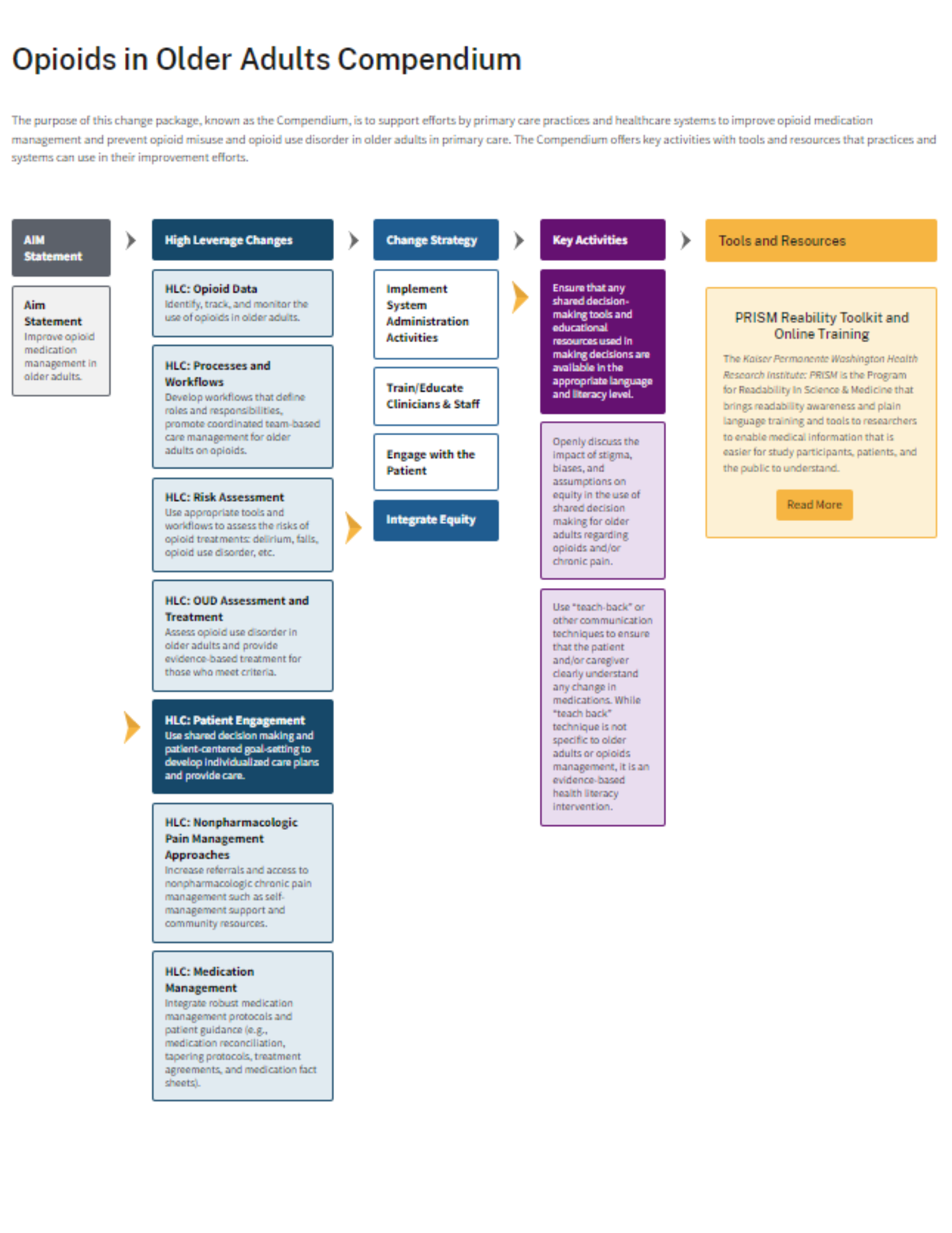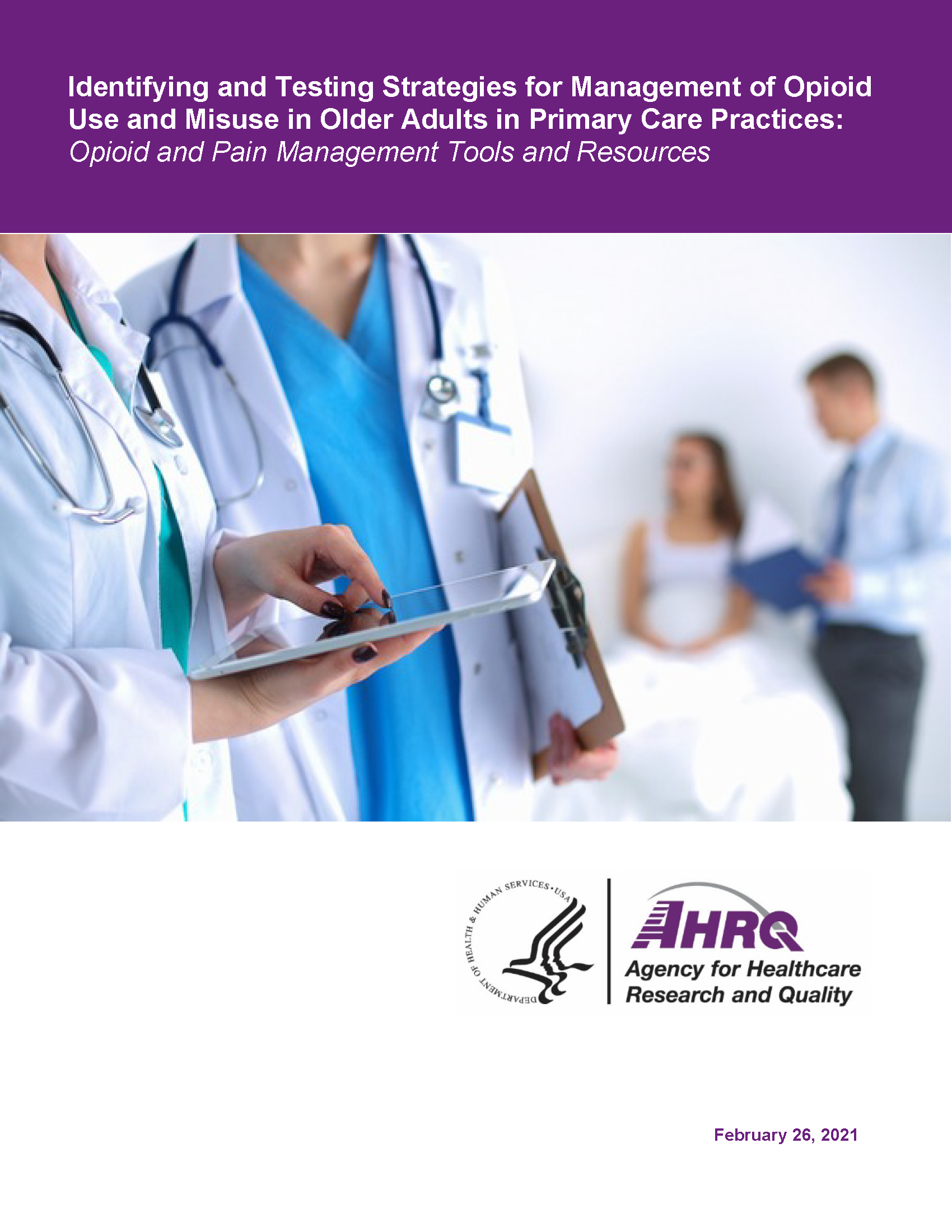The AHRQ Older Adult Opioid Initiative is now complete. This initiative resulted in a change package, known as the Opioid Use in Older Adults Compendium, to support efforts by primary care practices and healthcare systems to improve opioid medication management and prevent opioid misuse and opioid use disorder in older adults in primary care. The Compendium offers key activities with tools and resources that practices and systems can use in their improvement efforts. AHRQ strongly encourages practices and systems to engage patients in the quality improvement process using resources and tools provided in this Compendium.
Management of Opioid Use and Misuse in Older Adults in Primary Care Practices
Background
Overreliance on opioids for the treatment of pain has resulted in widespread opioid misuse and opioid use disorder (OUD) which has increased in recent years at an alarming rate. Although attention has largely focused on opioid use in younger and middle-aged adults, older adults have also been affected by the widespread use of opioids. The number of older adults who reported misusing opioids almost tripled from 2012 to 20191, 2, and opioid-related hospitalizations and emergency department visits by older adults have soared3. Both patients and providers have struggled to adapt to new guidelines advocating judicious use of opioids given the high prevalence of chronic pain among older adults. Further, approaches that effectively manage opioid use among older adults have eluded many providers.
Approach
The Agency for Healthcare Research and Quality (AHRQ) launched an initiative in September 2019 to identify and implement strategies to improve the prevention and management of opioid use, misuse, and OUD among older adults with chronic pain in primary care practices. As part of this project, AHRQ created a compendium of strategies, tools, and resources to bring about high leverage changes for improvement of opioid management among older adults with chronic pain.
As the first step in developing the compendium, the project team assembled a variety of tools and resources identified through a robust environmental scan. The tools and resources address:
- Pain management,
- Opioid treatment,
- Prevention of opioid-related harms and adverse events (e.g., respiratory depression and fractures from falls), and
- OUD among older adults in primary care settings.
Abt convened and facilitate two sequential learning collaboratives comprised of 12 practices each. The learning collaboratives helped to develop high level change strategies to assist with appropriate prescribing and management of opioid use and the prevention and treatment of opioid misuse. Over the next two years, primary care practices participated in one of the two learning collaboratives to implement and provide evidence for a minimum of three high-level change strategies. Practices selected one of the strategies proposed by AHRQ, modified one of the strategies proposed by AHRQ, or implemented innovative strategies of their own design.
Products and Resources
1. Substance Abuse and Mental Health Services Administration, 2019 National Survey on Drug Use and Health: Detailed Tables. 2020. Link. Accessed 10/15/2020.
2. Substance Abuse and Mental Health Services Administration. Results from the 2012 National Survey on Drug Use and Health: Detailed Tables. 2013. Link. Accessed 10/15/2020.
3. Computed from HCUP Fast Stats. Healthcare Cost and Utilization Project (HCUP). April 2020. Agency for Healthcare Research and Quality, Rockville, MD. Link. Accessed 10/29/2020.






